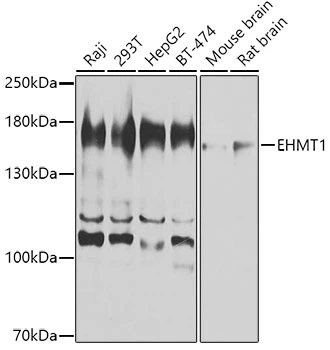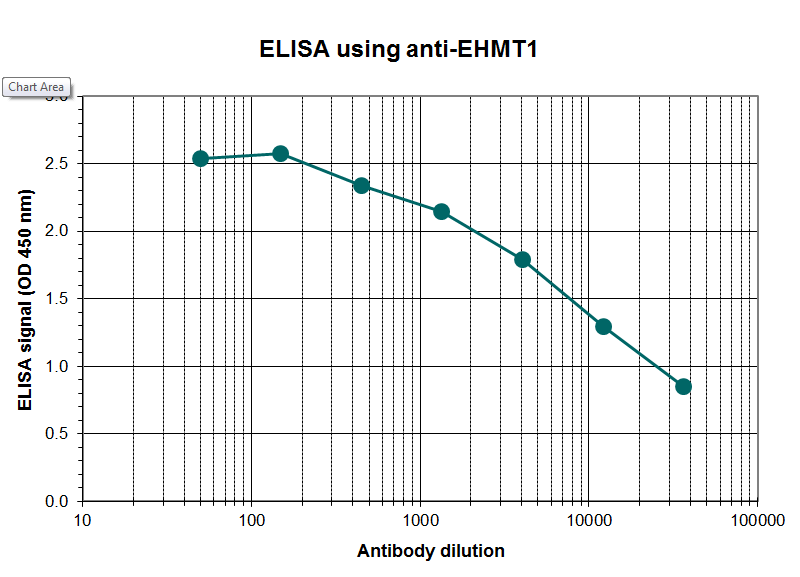
WB analysis of various sample lysates using GTX66528 GLP antibody. Dilution : 1:1000 Loading : 25μg per lane
GLP antibody
GTX66528
ApplicationsWestern Blot
Product group Antibodies
ReactivityHuman, Mouse, Rat
TargetEHMT1
Overview
- SupplierGeneTex
- Product NameGLP antibody
- Delivery Days Customer9
- Application Supplier NoteWB: 1:500 - 1:2000. *Optimal dilutions/concentrations should be determined by the researcher.Not tested in other applications.
- ApplicationsWestern Blot
- CertificationResearch Use Only
- ClonalityPolyclonal
- ConjugateUnconjugated
- Gene ID79813
- Target nameEHMT1
- Target descriptioneuchromatic histone lysine methyltransferase 1
- Target synonymsEHMT1-IT1, EUHMTASE1, Eu-HMTase1, FP13812, GLP, GLP1, KLEFS1, KMT1D, histone-lysine N-methyltransferase EHMT1, EHMT1 intronic transcript 1, G9a-like protein 1, H3-K9-HMTase 5, euchromatic histone-lysine N-methyltransferase 1, histone H3-K9 methyltransferase 5, histone-lysine N-methyltransferase, H3 lysine-9 specific 5, lysine N-methyltransferase 1D
- HostRabbit
- IsotypeIgG
- Protein IDQ9H9B1
- Protein NameHistone-lysine N-methyltransferase EHMT1
- Scientific DescriptionThe protein encoded by this gene is a histone methyltransferase that methylates the lysine-9 position of histone H3. This action marks the genomic region packaged with these methylated histones for transcriptional repression. This protein may be involved in the silencing of MYC- and E2F-responsive genes and therefore could play a role in the G0/G1 cell cycle transition. Defects in this gene are a cause of chromosome 9q subtelomeric deletion syndrome (9q-syndrome, also known as Kleefstra syndrome). Alternative splicing results in multiple transcript variants. [provided by RefSeq, Aug 2017]
- ReactivityHuman, Mouse, Rat
- Storage Instruction-20°C or -80°C,2°C to 8°C
- UNSPSC41116161






![WB analysis of GLP recombinant protein using GTX83242 GLP antibody [1B7B4].](https://www.genetex.com/upload/website/prouct_img/normal/GTX83242/GTX83242_20170912_WB_w_23061322_170.webp)

